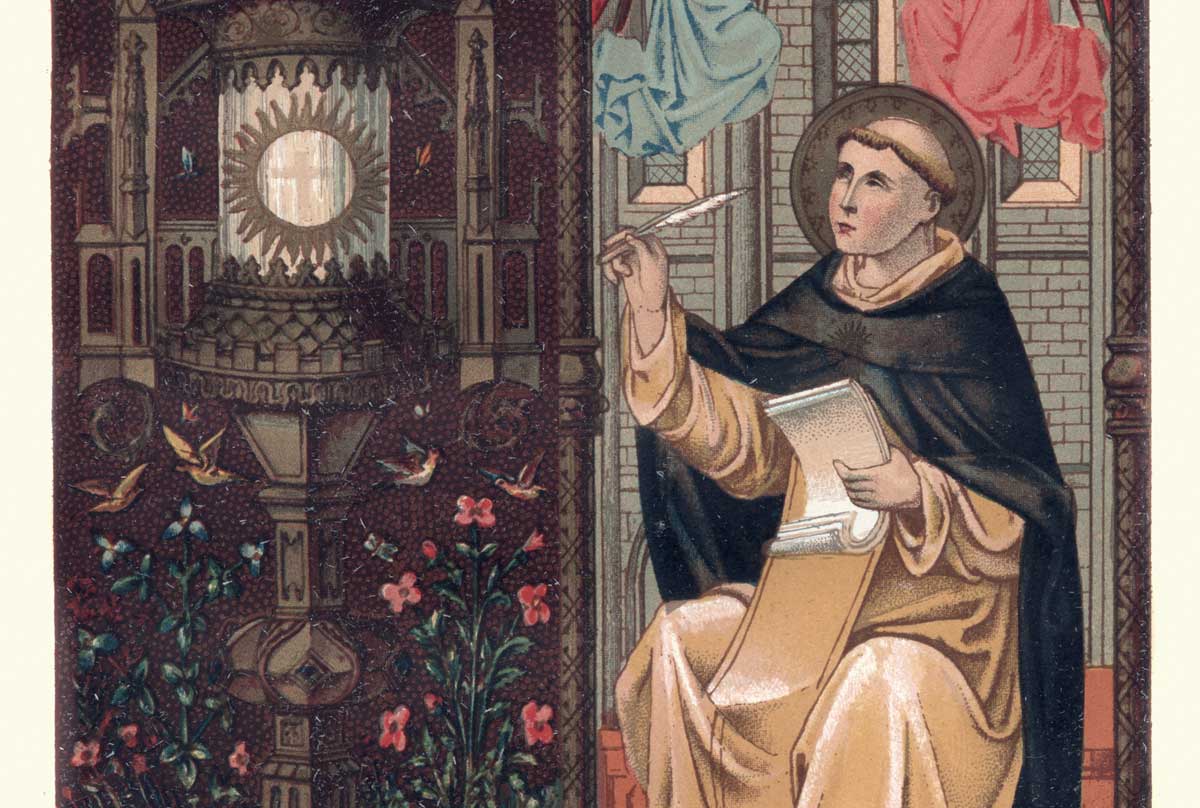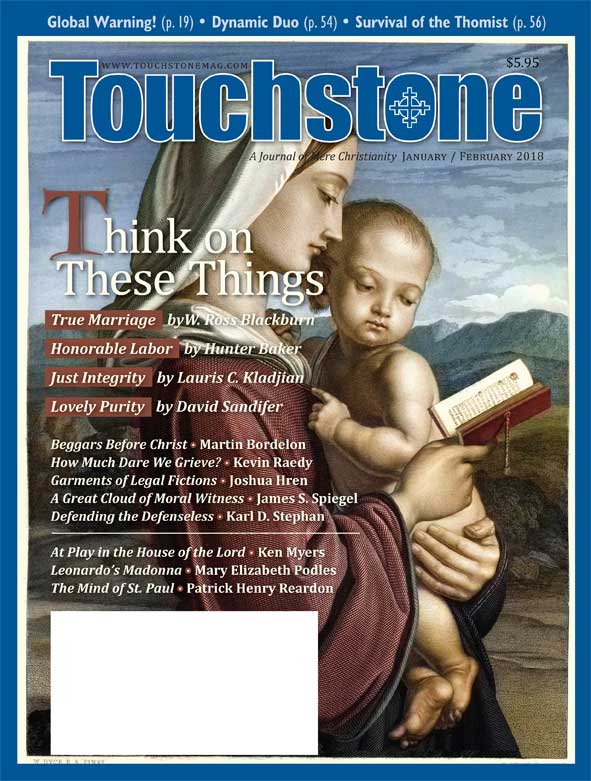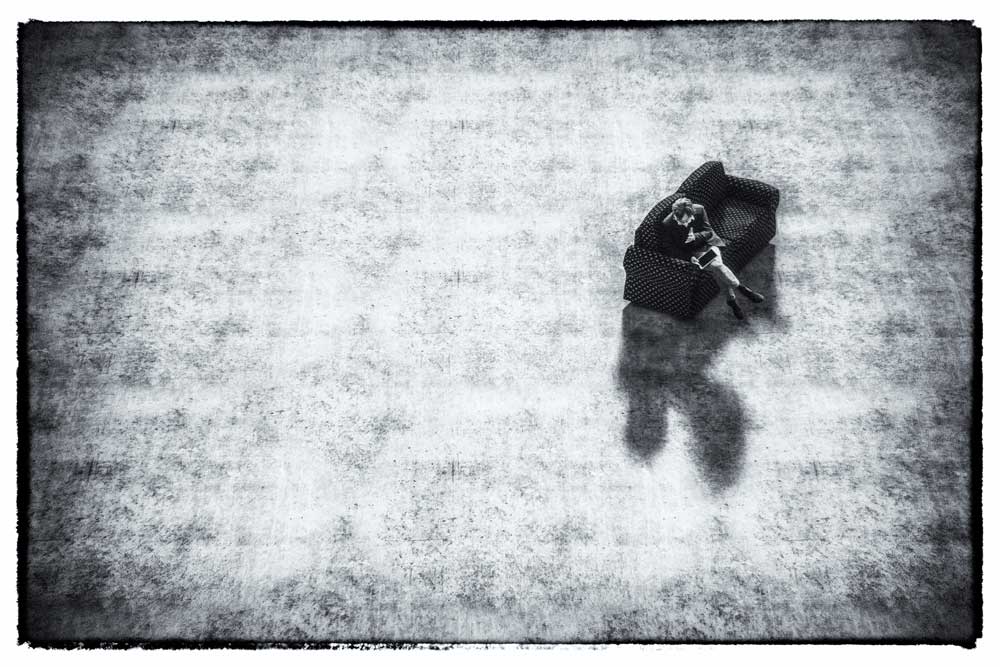Mortal Remains
Caspian, Solomon & Mr. Trump
by S. M. Hutchens
After Miraz the Usurper had been overthrown and the kingdom of Narnia had been delivered for young Prince Caspian by High King Peter and the other Pevensies, Aslan, the King of Kings, appeared among them. Caspian, led to Aslan by Peter, knelt and kissed the Lion's paw.
"Welcome, Prince," said Aslan. "Do you feel yourself sufficient to take up the Kingship of Narnia?" "I—I don't think I do, Sir," said Caspian. "I'm only a kid." "Good," said Aslan. "If you had felt yourself sufficient, it would have been proof that you were not. Therefore, under us and the High King, you shall be King of Narnia. . . ."
Thus C. S. Lewis transfers to his own tale the passage from 1 Kings 3 in which Solomon, now king upon the death of his father David, is visited by the Lord in a dream, who tells him, "Ask what I shall give you." Solomon replies,
"O Lord my God, you have made your servant king in the place of David my father, although I am but a little child; I do not know how to go out or come in. And your servant is in the midst of thy people whom you have chosen, a great people that cannot be numbered or counted for multitude. Give your servant therefore an understanding mind to govern your people, that I may discern between good and evil; for who is able to govern this your great people?"
And it pleased the Lord that Solomon had asked this. And God said to him, "Because you have asked this, and have not asked for yourself long life or riches or the life of your enemies, but have asked for yourself understanding to discern what is right, behold, I now do according to your word. Behold, I give you a wise and discerning mind, so that none like you has been before you and none like you shall arise after you. I give you also what you have not asked, both riches and honor. . . ." (3:7–13)
One of the effects of the increasing secularization of the United States is that this story from the Bible, once in the mind and blood of a nation that would put "In God We Trust" on its money and approve "One Nation under God" for the daily recitation of its schoolchildren, is fast-marching out of the national consciousness due to the success of its cultured despisers in making biblical faith hateful, and so in nullifying it as truth in the public square and mind. What would have been to earlier generations shocking levels of cultural—which includes biblical—illiteracy necessarily entail the lost ability to interpret the course of human events through a lens that once included Solomon's dream, an understanding of the relation of God and the nation that required its office-holders, the president preeminently, to profess faith in the Necessary God, without whom it was not possible to rule so great a people.
The fathers of the Republic—and one thinks particularly here of John Adams, who made it explicit—understood not only that the liberty they envisaged required belief in a universal moral order founded upon the precepts of the Creator, but also that the freedoms established in its Constitution were severable from the common faith. What had happened in France could happen here. They did not propose to evade the possibility artificially by the establishment of religion, but to a remarkable degree, which they understood as necessary, placed a faith in the people not unlike that found in Hebrews 6:9, whose author told his readers, the possibility of whose damnation he had just laid down, "Though we speak thus, yet in your case, beloved, we feel sure of better things, things that pertain to salvation. . . ." The worldly and sophisticated Tocqueville was not as optimistic, but hoped, in the face of human nature, for the best in the contradictions of the new American democracy.
A National Breakdown
Consideration of the vicious and atheistic French alternative, and of the disintegrating forces that could be expected to arise to controlling prominence once the moral restraints of traditional religion were removed, was not of great practical concern in the early days of the republic, not yet bothered by questions of how, for example, a nation founded on the theory that all men are created free and equal can survive when it decides to apply the benefits of equality and freedom to criminals, anarchists, and terrorists—or when it becomes a nation whose schoolmasters are encouraged to teach that freedom means creative individualism in the face of reason, justice, law, tradition, and religion, and to deliver these brainless preachments with the assumption that the future is ours with nothing important to be learned from the dogmas of a discredited past.
This metastasis is not regarded by those of the old American faith as progress in or toward a good New Order but a bad one, a breakdown, the loss of national integrity, the dissolution of a binding agent without which no nation can retain the unity necessary to act single-mindedly in the face of threatening geopolitical realities, internal and external. Historically, these binding and disciplining forces were supplied by the Tao's expression through Judeo-Christian ethics, for which the Sexual Revolution provided a powerful solvent, and around which other disintegrating forces clustered: the breakdown of the natural family, the welfare state, increasing withdrawal into the sterile pornographic utopia of electronic pseudo-reality, the further suppression of male strength through the promulgation of egalitarian mythology, and removal of the stigma from a now socially accepted homosexuality.
S. M. Hutchens is a senior editor and longtime writer for Touchstone.
subscription options
Order
Print/Online Subscription

Get six issues (one year) of Touchstone PLUS full online access including pdf downloads for only $39.95. That's only $3.34 per month!
Order
Online Only
Subscription

Get a one-year full-access subscription to the Touchstone online archives for only $19.95. That's only $1.66 per month!
bulk subscriptions
Order Touchstone subscriptions in bulk and save $10 per sub! Each subscription includes 6 issues of Touchstone plus full online access to touchstonemag.com—including archives, videos, and pdf downloads of recent issues for only $29.95 each! Great for churches or study groups.
Transactions will be processed on a secure server.
more on politics from the online archives
more from the online archives

23.6—November/December 2010
Darwin, Design & Thomas Aquinas
The Mythical Conflict Between Thomism & Intelligent Design by Logan Paul Gage
calling all readers
Please Donate
"There are magazines worth reading but few worth saving . . . Touchstone is just such a magazine."
—Alice von Hildebrand
"Here we do not concede one square millimeter of territory to falsehood, folly, contemporary sentimentality, or fashion. We speak the truth, and let God be our judge. . . . Touchstone is the one committedly Christian conservative journal."
—Anthony Esolen, Touchstone senior editor












